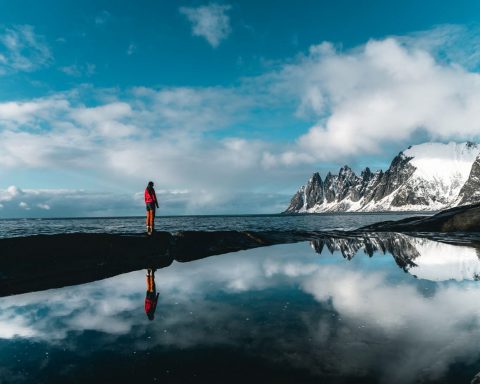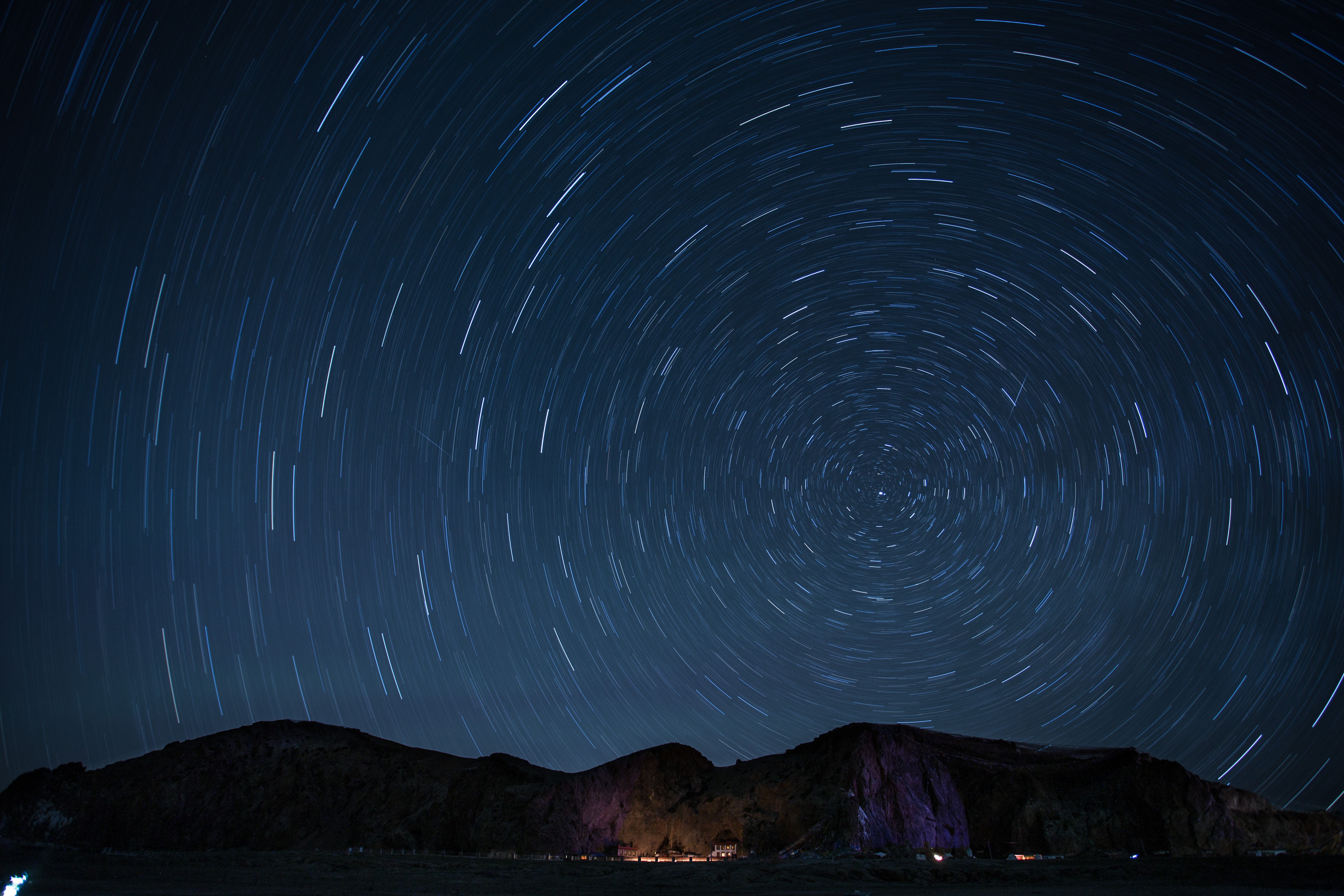“Magical thinking” on climate change is less Christian than climate science.

What psychologists call “magical thinking” is common among children and adults alike, and it does more damage than one might think. In the case of climate change denial, the magical result fantasized is both a wish fulfillment and a rejection of reality, even when dressed up in prayers and claims that God is in control and will solve the problem.
The first chapter of Genesis, a story told by a people who had seen the destruction of their land, were forced into exile, and returned knowing the fragility of God’s creation, is understood as poetry of worship and wonder. It cautions us not to take our sustainable Paradise for granted. If the Bible is our moral compass, even that first chapter supports profound concern about climate change and openness to scientific analysis.
God’s call to sustainability is not only for Christians. It starts in the Jewish scriptures in Genesis, with the story of God fashioning a sustainable world. Genesis 1 tells the creation narrative as a story of seven days—breaking up our world into seven essential works of God, and so identifying each of those parts as holy.
The story of the first three days (Genesis 1:3-13) relates the creation of the foundations: Day 1: light, day and night, Day 2: the firmament, and waters above and below, and Day 3: the dry land, earth, the seas, vegetation and trees.
The description of days four through six (Genesis 1:14-31) relates the creation of ongoing life within the foundations and parallels the first three days. Day 4: sun, moon, seasons for growing, Day 5: birds and fish, and Day 6: animals and humans.
___________________________________________
If the dry land is our place of salvation, we should recognize it as such….we will always need it as a place of salvation.
___________________________________________
On Day 3, God commands the dry land to appear. It is significant that this word, dry land, is used instead of earth. Dry land appears in the Old Testament in only a few places in addition to this text. It is used in the Jonah story when Jonah says that he believes in the God who created the dry land, when the sailors were rowing back to dry land from the storm, and when the fish vomited Jonah to dry land. Dry land also appears in Isaiah: “For I will pour water on the thirsty land, and streams on the dry ground; I will pour my spirit upon your descendants, and my blessing on your offspring.” (Isaiah 44:3, NRSV) Lastly, the dry ground is what the Israelites flee across when the Red Sea parts during the Exodus. When dry land is invoked in scripture, it is used as a place of salvation.
If the dry land is our place of salvation, we should recognize it as such. Good, foundational, dry land provides the basis of life for all creation. While we may use it for our energy needs, we should not pollute it, or make it uninhabitable—we will always need it as a place of salvation.
We should use the other foundations that God provided at creation for our energy needs: light, water and wind. Energy always with us.
On Day 3, God also created herbage that sows its own seed, and trees that make fruit that contains its own seed. God created plants and trees to be self-generating, continuing into the future. Food provided forever.
In the story of Days 4-6, we begin to see the order in God’s creation. The fish, the birds and the animals are created according to their kind. Humans are created the same day as the animals. But the creation of humans is different from the rest of creation.
The first difference is that the verb changes. To this point God has said “Let there be”; here God says, “Let us make humankind in our image.” Who is us? “When he established the heavens, I was there” (Proverbs 8:27a). Is it possible that Wisdom is the “us” here in Genesis? Is it possible that the image of our human identity included Wisdom? If so, that has profound implications for how we should interpret the nature of our dominion. Are we modeled after an arbitrary tyrant, or a wise ruler?
___________________________________________
Is an authoritarian sense of the command to “rule” really how it is meant to be carried out, then? ….the Hebrew preposition being translated as “over” has many meanings.
___________________________________________
Once humans are created, God speaks to them in the first person singular. This suggests that a special relationship is developed between God and humankind. God starts by giving humans a blessing to be fruitful and multiply and fill the earth. This is the same blessing that God gives to the birds, the fish and the creeping things. To this point we are equally blessed by God. God then gives humans extra instructions, adding that humankind is to subdue the earth and rule over the fish, the birds, the cattle and all creeping things—so that we have food, just as God has provided food for those creatures. This part of the blessing, “to subdue and to rule,” has been used to justify exploitation of the earth. But actually, the passage as a whole emphasizes God’s gifts, given deliberately, to all of creation.
Is an authoritarian sense of the command to “rule” really how it is meant to be carried out, then? Most translations interpret the phrase as “rule over”. But the Hebrew preposition being translated as “over” has many meanings. It can mean within a space (within your gates, Exodus 20:10), pertaining to time (in or on that day, Isaiah 19:23), of a condition (in peace, Genesis 15:15), or presence in the midst of a multitude (there was not one left among them, Exodus 14:28). I choose the translation ‘among.’ This gives the passage a sense of all creation, humans and non-humans, existing in this creation together. Might we think of rule/dominion differently if we think of ourselves in the midst of all creation, rather than over it?
As Christians, instead of treating the earth as if it was ours to plunder at will, we should think about the earth as a gift from God that we are responsible for preserving for the best use of all creation. We should ask the question: what is the gain from the plunder versus the risks to all aspects of life?
The sin of Adam and Eve was the breaking of relationship with God and with God’s creation. Our moral imperative, still, is to be in right relationship with God, with each other and with all of creation.
Now we are confronted by the reality of climate change. The creation we are called to rule among is dying. The plants and trees that are supposed to self-generate into the future are dying – through drought, through weather, through extreme conditions from climate change. Animal species are dying out, from climate change. People are dying, from health issues related to climate change. This world that God created and gave humans responsibility for is being impacted negatively by climate change. Some of us deny it. Some of us do nothing to mitigate it. And this has profoundly affected our relationship with God.

Magical thinking wishes away the problem—sometimes assuming that others will solve the problem through technological fixes, sometimes asserting that God will directly influence the climate to mitigate any damage that humans can do. But Christians are called to do more than magical thinking, because magical thinking about climate change may permanently exile us from God’s good creation. We are called to follow our moral compass, to follow the scriptures and care for this creation of God’s. This means challenging all evasions, so that we are prophetic in the pulpit, prophetic in the public square, and prophetic in using our vote.
[1]Doré’, Gustav. “Adam and Eve Are Driven out of Eden” (Gen. 3:1-6,13-24)
Doré’s English Bible, 1866. Public domain image accessed via Wikimedia commons, 11-22-2018.
***
Author Bio: Rev. Sue Smith put her MBA to work in the global financial services industry for 30 years before turning to ministry, getting an M. Div from New Brunswick Theological Seminary. She is a member of the Advisory Committee on Social Witness Policy and serves as Stated Clerk of Monmouth Presbytery, on the Coalition of Healthy Ports representing GreenFaith, and as a board member of Clean Water Action, NJ. She also formerly served as Vice Moderator of Presbyterians for Earth Care.






Unbound Social